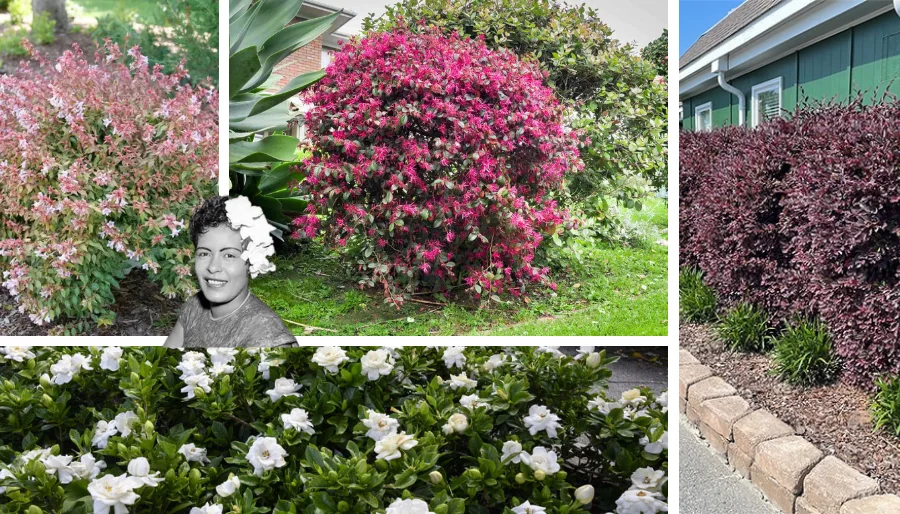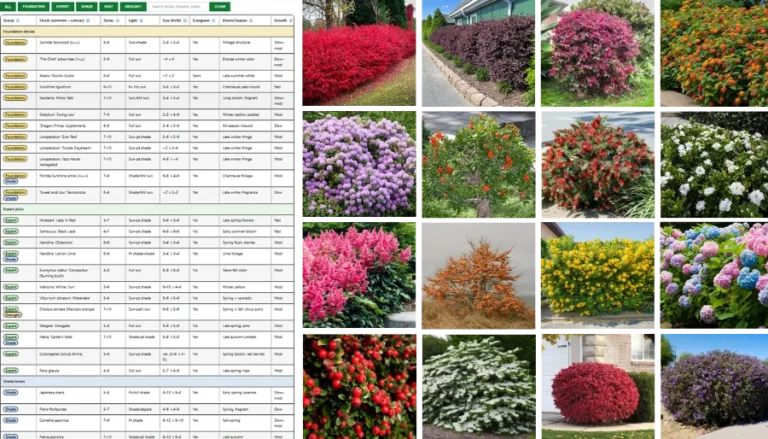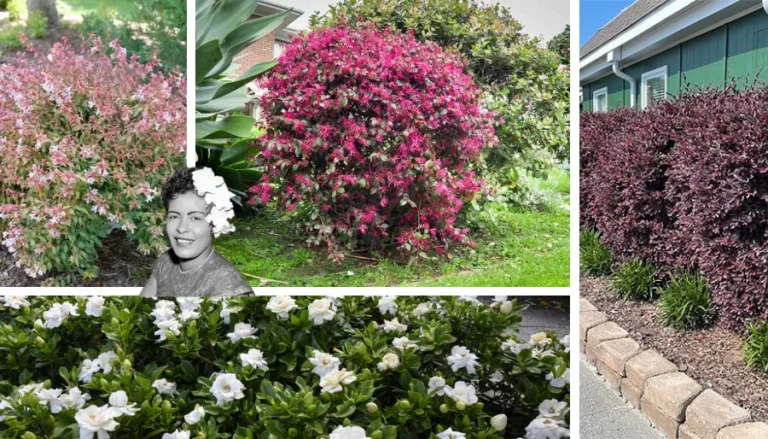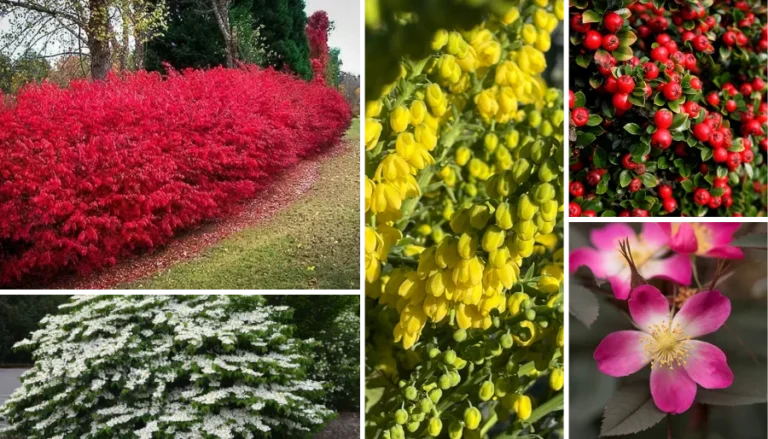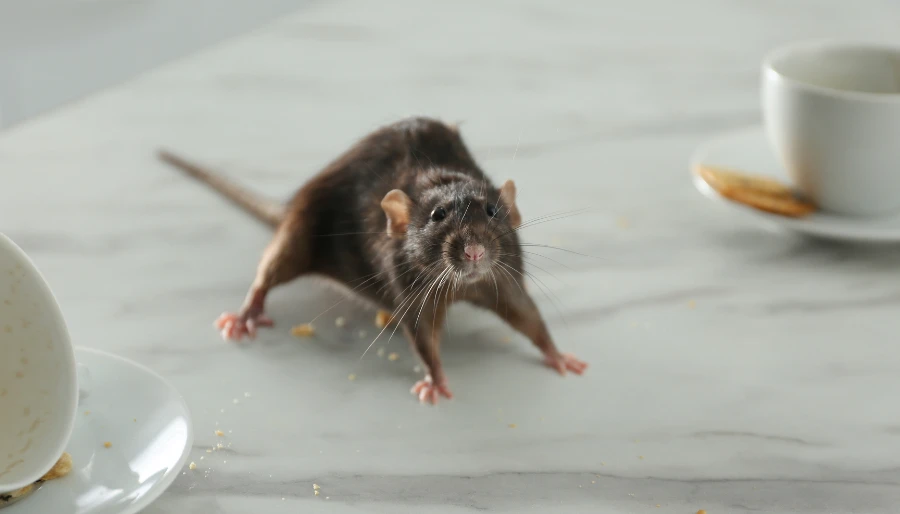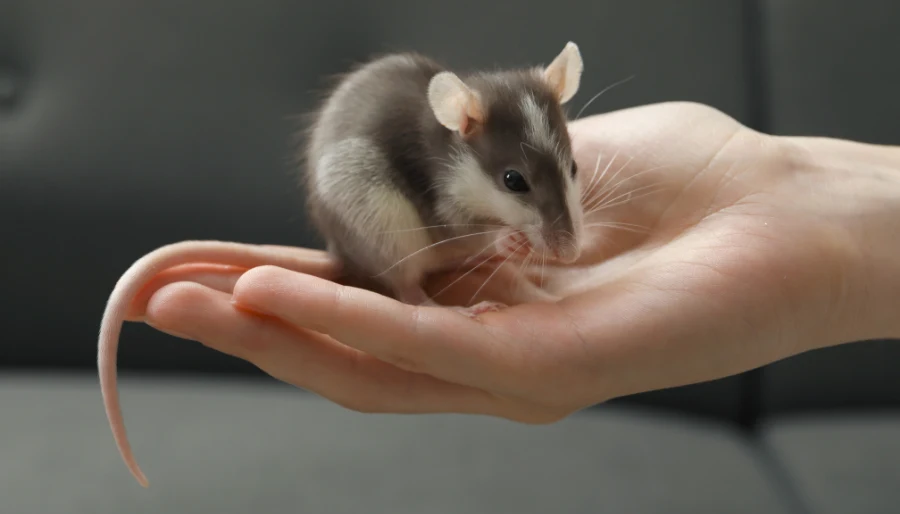Foundation shrubs are the backbone of a welcoming home landscape. They soften hard architectural lines, disguise eyesores like utility boxes, and create the first impression for anyone who steps onto your property.
A good foundation shrub can be planted right up to your house’s foundation without risking structural damage over time, as can be the case with many trees that aren’t foundation friendly. And thankfully, many of the most attractive options that won’t damage the foundation are surprisingly easy to care for.
Below you’ll find ten tried-and-true foundation shrubs that thrive with little fuss and are proven to be good growers, and we tossed in some fascinating facts you may not know. Think of the facts as potential talking points when your neighbor compliments your new shrub in passing.
Whether you need sun-lovers or shade-tolerant varieties, there’s a shrub here that can transform your front yard.
1. Sprinter Boxwood
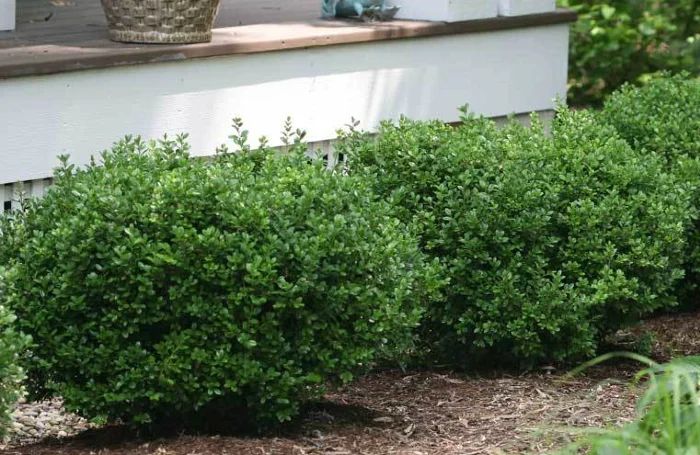
Boxwoods have been used in European gardens for centuries — Versailles even planted miles of them in the 1600s. The modern Sprinter variety is more disease-resistant, standing strong against boxwood blight.
● Zones: 5–9
● Size: 2–4 feet tall
● Light: Sun or shade
● Why it works: Extremely versatile — prune into a tidy hedge or let it grow naturally.
Fun fact: George Washington designed his Mount Vernon gardens with boxwoods in the late 1700s, and many still survive today.
2. Fire Chief Arborvitae
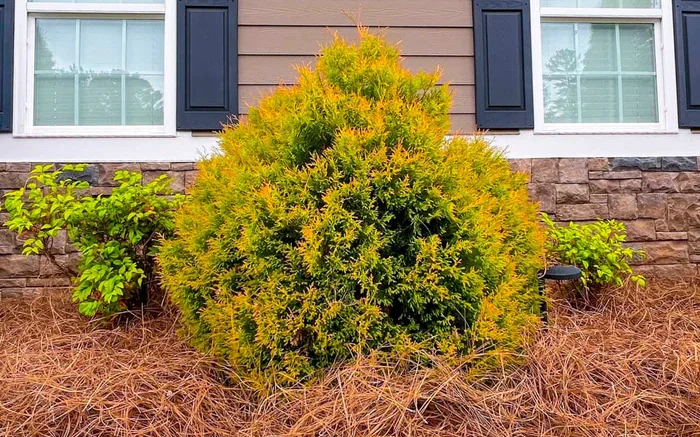
This rounded evergreen shifts its color through the seasons — bright green in summer, glowing copper-bronze in winter.
● Zones: 5–9
● Size: 4×4 feet at maturity
● Light: Full sun
● Why it works: Bugs avoid it, pruning is optional, and it adds four-season interest.
Did you know? Arborvitae means “tree of life” in Latin. Native Americans once brewed tea from its leaves to cure scurvy because of its high vitamin C content.
3. Abelia ‘Mucho Gusto’

With variegated leaves and delicate white flowers, Abelia earns points for toughness. It thrives even in heavy red clay soils.
● Zones: 6–9
● Size: 3×3 feet
● Light: Full sun
● Why it works: Attracts pollinators, handles neglect, and pairs beautifully with other foundation plants.
Fun fact: Abelia was first named in honor of Dr. Clarke Abel, a British naturalist who traveled with the embassy to China in 1817.
4. Sunshine Ligustrum
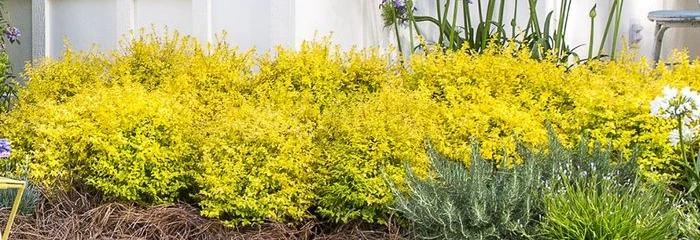
This sterile cultivar of ligustrum is famous for its neon chartreuse foliage that lasts year-round.
● Zones: 6–10
● Size: 3–5 feet tall
● Light: Needs 6+ hours of sun to stay bright yellow
● Why it works: Perfect for adding a pop of color against darker homes or shaded corners.
Bonus: Because it’s sterile, it won’t reseed invasively like older ligustrum varieties.
5. Gardenia ‘Pillow Talk’

Nothing says “Southern charm” like a blooming gardenia. Pillow Talk is compact, fragrant, and long-blooming.
● Zones: 7–10
● Size: 3–4 feet
● Light: Full sun
● Why it works: Evergreen foliage plus white, double blooms with legendary fragrance.
Celebrity gardeners from Martha Stewart to Oprah have praised gardenias for their elegance. In fact, Billie Holiday wore gardenias in her hair as her signature look.
6. Distylium ‘Swing Low’
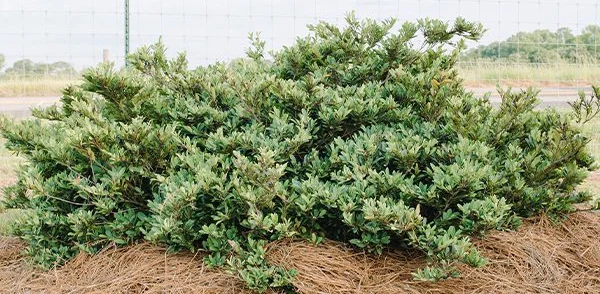
An under-the-radar evergreen, Distylium thrives with no fuss.
● Zones: 7–9
● Size: 2–3 feet tall, spreading 4–6 feet wide
● Light: Full sun
● Why it works: Deer resistant, drought tolerant, and perfect for low, wide coverage.
Fun fact: Distylium is native to East Asia, but it’s quickly becoming a landscape staple in the southeastern U.S. thanks to its adaptability.
7. Dragon Prince Cryptomeria
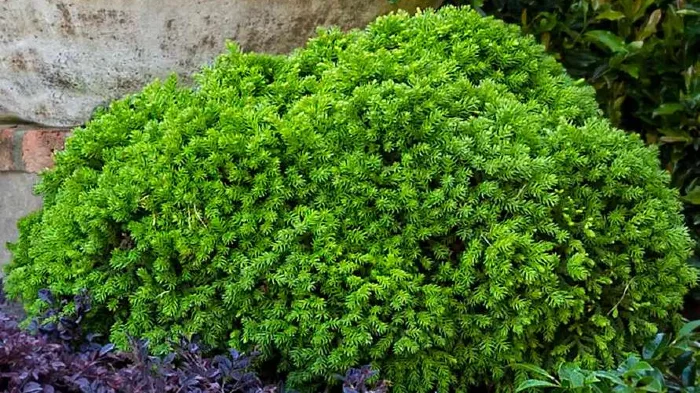
A dwarf evergreen with a naturally rounded habit, Dragon Prince adds lush texture.
● Zones: 6–9
● Size: About 3–4 feet tall and wide
● Light: Full sun
● Why it works: Dense, low-maintenance foliage stays green all year.
Cryptomeria, also called Japanese cedar, is Japan’s national tree and often planted around temples and shrines for protection
8. Loropetalum Varieties

Known as Chinese fringe flower, Loropetalum comes in different sizes and colors.
● Ever Red: 5–6 feet, red flowers
● Purple Daydream: Compact at about 3 feet
● Jazz Hands Variegated: Multicolored leaves for extra flair
● Why it works: Evergreen foliage, early-spring blooms, and versatile sun-to-shade tolerance.
The name Loropetalum comes from Greek: loron (strap) and petalon (petal), describing its shredded-looking flowers.
9. Florida Sunshine Anise
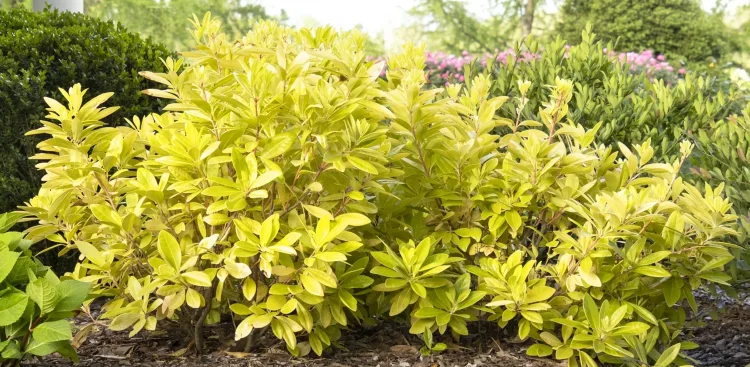
A bright-chartreuse shrub with licorice-scented leaves that deer avoid.
● Zones: 7–9
● Size: 6–8 feet tall
● Light: Prefers shade or morning sun
● Why it works: Adds dramatic color to shady foundations while staying evergreen.
Fun fact: The plant is in the star anise family — the same group that produces the spice used in mulled wine and pho.
10. Sweet and Low Sarcococca
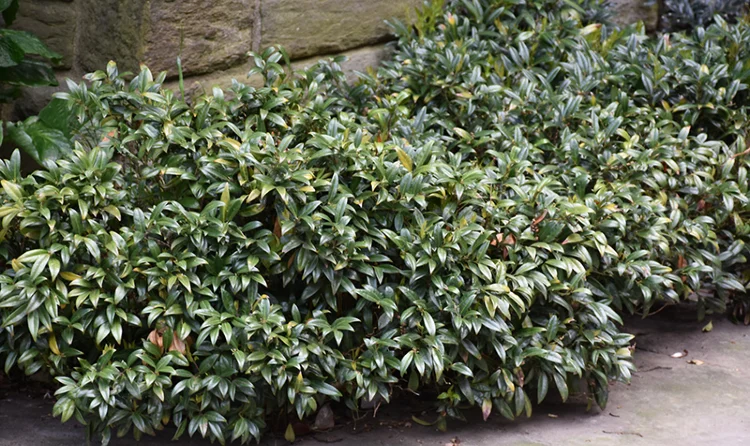
A petite, shade-loving shrub with glossy leaves and fragrant winter flowers.
● Zones: 6–9
● Size: About 2 feet tall, 3 feet wide
● Light: Shade or morning sun
● Why it works: Low-growing, fragrant, and able to naturalize gently in the right conditions.
In Victorian times, sarcococca (also called “sweet box”) was a staple in shade gardens for its perfume-like blooms in the bleakest months of the year. And, as we all know, Victorian times needed every good odor they could get.
More To Discover
- 5 Simple Ways for a Beginner to Start Going Green and Improve Your Health at the Same Time
- Why Renewables Can’t Save Our Planet And Are Actually Part Of The Problem
- My Journey Losing 250 Pounds Without Surgery Or A Prescription And What I Eat Each Day
- MIT’s Bacteria-Based Solution for Sustainable Farming May, One Day, Replace Chemical Fertilizers
Final Thoughts
Foundation shrubs set the tone for your home’s personality. Pick ones that not only thrive in your climate but also make you smile when you pull into the driveway. With these ten low-maintenance options, you’ll enjoy structure, color, and fragrance season after season.
And with the little facts and interesting tidbits we tossed in, you’ll have something to say the next time your neighbor is making small-talk with you while you’re trying to carry eleven bags of groceries into the house because only fools make more than one trip.







